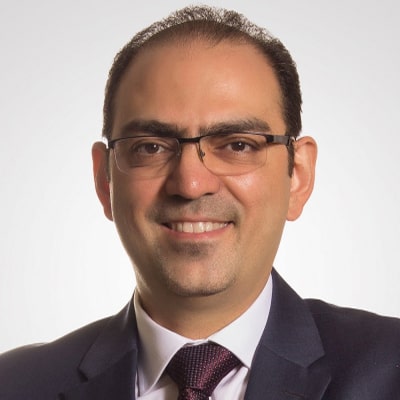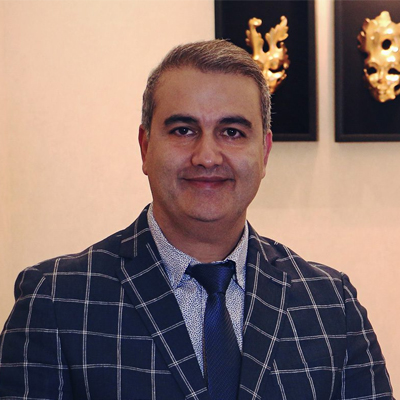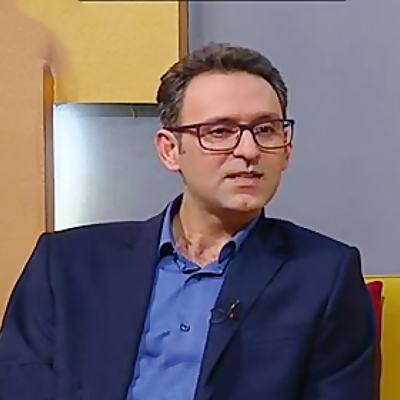Knee Replacement in Iran
Knee replacement, also known as knee arthroplasty or a total knee replacement, is an operation to repair an arthritis-damaged knee.
We help you to double your beauty! Get in touch with our consultants…


Stay in Iran
7 days
Recovery time
12-14 days
Clinic Stay
1 day
Stay in Iran
7 days
Recovery time
12-14 days
Clinic Stay
1 day
- Packeges
- Videos
- B & A Photos
- Surgeon
- Hotels
- FAQs
What is knee replacement?in Iran
Knee replacement, also known as knee arthroplasty or a total knee replacement, is an operation to repair an arthritis-damaged knee. The kneecap and the caps on the ends of the bones that make up the knee joint are made of metal and plastic. If you have severe knee injuries or arthritis, this surgery might be an option for you.
The purpose of knee replacement surgery is to resurface the damaged areas of the knee joint and to relieve persistent knee pain that is unaffected by other forms of care.
An orthopedic surgeon evaluates your knee’s range of motion, stability, and strength to decide if a knee replacement is the best option for you. X-rays are used to assess the degree of damage.
Depending on your age, weight, level of activity, knee size and shape, and general health, your doctor may recommend one of several knee replacement prostheses and surgical approaches.
Our experts at Mediranco health tourism company consider every single aspect to determine if a knee arthroplasty surgery is need for you.
Cost of knee replacement in Iran
The price of a total knee replacement in Iran is determined by the length of the hospital stay, the amount of physical therapy provided while in the hospital, the length of the recovery period, the type of anesthesia used, and the surgeon’s fee. In the US, the average hospital fee for a total knee replacement (TKR) is 40,000€; while in Canada, the average cost of a knee replacement is close to that of less developed nations like India or Mexico at 12,000€, or so. However, in some bordering countries, like Turkey, the same procedure would cost less than 6,000 dollars. the cost of a total Knee Replacement in Iran , ranges from only 2,800€ to 3,800€. Your physical condition at the time of the replacement as well as the location of the procedure also contributes to the total cost. The procedure and cost may be impacted by any additional medical issues you may have, even if they seem unrelated to your knees. Our doctors at Mediranco make sure to check everything up so you won’t face any complications in future.
Romanian choosing Iran for a perfect knee replacement result
why Iran for knee replacement surgery?
Iran is rapidly gaining recognition as a leading destination for knee replacement surgery, offering a trifecta of world-class medical facilities, highly proficient orthopedic surgeons, and cost-effective treatment options. Individuals seeking relief from debilitating knee pain and a return to improved mobility can find solace in Iran’s cutting-edge hospitals, which boast the latest advancements in medical technology. Additionally, Iran’s revered healthcare system ensures that patients receive exceptional post-operative care and comprehensive rehabilitation services.
One of the most compelling aspects of Iran as a medical tourism hub is its competitive pricing, which makes knee replacement surgery accessible to international patients without sacrificing the quality of care. Beyond its medical prowess, visitors can also embark on a captivating cultural journey, immersing themselves in Iran’s rich heritage and diverse attractions.
By choosing Iran for knee replacement surgery, you not only gain access to top-notch healthcare but also have the opportunity to explore a multifaceted destination that seamlessly blends medical recovery with cultural exploration. Your path to a pain-free and active life starts here
Others Video
Australian getting a knee replacement in Iran thinks it’s way better than you think
Australian getting a knee replacement in Iran thinks it’s way better than you think
Australian getting a knee replacement in Iran thinks it’s way better than you think
Australian getting a knee replacement in Iran thinks it’s way better than you think
Rhinoplasty in Iran before and after
Before
after


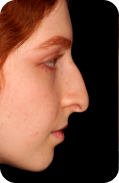

Before
after




Before
after




Before
after




What Our Customer Say
Iesna
GB

Mediranco is an excellent agency they helped me arrange my whole trip to Iran and surgery with Dr. Hooman Ganjehkhosravi. From the moment I arrived in Tehran, I was greeted with warmth and hospitality that made…
Lydia
GB

I had a guide called sara who was absolutely amazing. She was so caring and kind and made sure I was comfortable and safe throughout my trip. I really recommend any one using mediran to book with sara!
Mansoor
DK
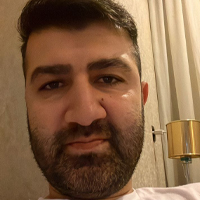
My name is Mansoor from Denmark .I highly recommend this mediranco. Mr Hossain was very kind and Good person. The Company mediranco is very fast to response. Thanks mediranco
Amal
AU

I had an amazing experience with Mediranco’s service. Traveling to Iran on November 1st, 2023, for Gastric sleeve surgery was truly incredible. From the airport pick-up to a farewell dinner on my last day, the journey was exceptional…
Now, let’s have a look at the photos of our patients in Iran!






Dr Shahriar Yahyavi
+2000
Successful Surgeries
12
Years of Experience
Successful Surgeries
+5
Dr Mitra Manavi
+2000
Successful Surgeries
12
Years of Experience
Successful Surgeries
+5
Dr kasra sabeti
+2000
Successful Surgeries
12
Years of Experience
Successful Surgeries
+5
Dr Farzad Nikouseresht
+2000
Successful Surgeries
12
Years of Experience
Successful Surgeries
+5
Dr Asadollah Mahdavi
+2000
Successful Surgeries
12
Years of Experience
Successful Surgeries
+5
Best knee replacement Surgeon Iran
How is knee replacement performed in Iran?

Knee replacement surgery in Iran is typically conducted under general anaesthesia (you are unconscious throughout the procedure) or spinal anaesthesia or epidural (you are awake but have no feeling below the waist). The worn ends of the bones of your knee joint are removed and replaced with custom-fit metal and plastic components (a prosthesis). A whole or partial knee replacement is an option. This will be determined by the extent of your knee damage. The most prevalent are total knee replacements. Both sides of your knee joint are replaced in a total knee replacement. The operation takes between 1 and 3 hours.If only one side of your knee is injured, a partial knee replacement may be an option. This is a less invasive procedure that requires a smaller incision and less bone removal. It is appropriate for around one in every four people who have osteoarthritis. Partial knee replacement has the advantage of a shorter hospital stay and recovery duration. Blood transfusions are also unlikely. This form of joint replacement frequently results in more natural knee movement and allows you to be more active than a total knee replacement. Your surgeons at Mediranco will guide you with the sort of surgery they intend to employ and why they believe it is the best option for you.
Hotels

Shiraz Hotel
Tehran, crossroad of chamran and valiasr, parsian esteghlal international hotel
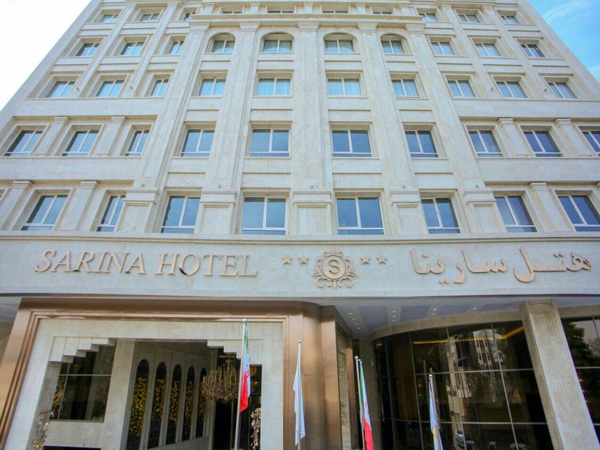
Sarina Hotel
Tehran, crossroad of chamran and valiasr, parsian esteghlal international hotel

SarayeAmeriha Boutique Hotel
Tehran, crossroad of chamran and valiasr, parsian esteghlal international hotel

Parsian Safaiyeh Hotel
Tehran, crossroad of chamran and valiasr, parsian esteghlal international hotel

Parsian Esteghlal Hotel
Tehran, crossroad of chamran and valiasr, parsian esteghlal international hotel

Parsian Azadi Hotel
Tehran, crossroad of chamran and valiasr, parsian esteghlal international hotel
How to Recover From knee replacement ?
- Take time off work
Most patients take 7-10 days off work to recover from a knee replacement procedure. You will likely feel some discomfort and swelling during this time, so it is important to take it easy and rest.

- Follow your surgeon’s instructions
Guidance from your plastic surgeon is key post knee replacement . Adhere to their instructions meticulously for effective care. Your surgeon will provide details on cleaning the area, managing swelling and pain, and scheduling follow-up appointments. Keep your head elevated during the initial days to reduce swelling, and your surgeon might recommend a nose splint or cast for protection. Additionally, pay attention to your diet—following your surgeon’s advice on nutrition and fluid intake contributes to a smooth recovery. Trust the process and ensure the best outcomes by following your surgeon’s personalized care plan.

- Avoid strenuous activities:
You should avoid strenuous activities such as exercise, heavy lifting, and bending over for at least two weeks after the procedure. This will help to minimize swelling and prevent any damage to the delicate tissues in your nose.

- Take your medications as directed
If prescribed pain medication, take it as directed to alleviate any post-procedure discomfort. Also, to ensure the best results and prevent infections, diligently take the prescribed antibiotics. Timely and consistent medication intake is crucial, so stay on schedule and trust your surgeon’s advice for a smooth and successful recovery.

- Use cold compresses
Applying cold compresses to your nose can help to reduce swelling and discomfort. Be sure to follow your surgeon’s instructions on how often to use cold compresses and how long to apply them for.

- Attend follow-up appointments
Applying cold compresses to your nose can help to reduce swelling and discomfort. Be sure to follow your surgeon’s instructions on how often to use cold compresses and how long to apply them for.

- Avoid alcohol and smoking
Applying cold compresses to your nose can help to reduce swelling and discomfort. Be sure to follow your surgeon’s instructions on how often to use cold compresses and how long to apply them for.

knee arthroplasty recovery
Depending on your recovery and the type of knee replacement you receive, you will typically stay in the hospital for 2 to 3 days. Partial knee replacement patients typically stay in the hospital for a shorter period of time. You might be allowed to leave the hospital the same day in some hospitals.
The muscles and tissues surrounding your new knee will take time to heal, and you could initially feel extremely exhausted. If you have any specific concerns or questions, consult your GP and abide by their advice. Following your hospital discharge, you can be eligible for up to six weeks of home assistance and assistance devices. Additionally, you might want to make plans for someone to assist you for a week or so. Your physical therapy exercises are a crucial component of your recovery. It is critical that you continue with them once you get home. A physiotherapist will keep an eye on your recovery.
Preparing for knee replacement surgery
A patient must normally wait 6 to 12 weeks before having knee replacement surgery. A patient can do things at this time to help ensure a successful surgery and recovery.
How long
does the surgery take?
The duration of knee replacement surgery can vary depending on several factors, including the complexity of the procedure, the patient’s overall health, and the surgical technique used. On average, knee replacement surgery typically takes approximately 1 to 2 hours from the start of the operation to its completion.
Here’s a breakdown of the time involved in knee replacement surgery:
1. Preparation: Before the surgery begins, patients are prepared for the procedure, which includes anesthesia administration, positioning on the operating table, and sterilization of the surgical site. This preparation usually takes about 20 to 30 minutes.
2. Incision and Exposure: The surgeon then makes an incision over the knee joint to access the damaged area. The size and location of the incision can vary based on the specific procedure (total knee replacement or partial knee replacement). This step can take approximately 10 to 20 minutes.
3. Resection of Damaged Tissues: In total knee replacement, the damaged cartilage and bone are removed from the knee joint. For partial knee replacement, only the affected portion is resected. This phase can take 20 to 30 minutes or more.

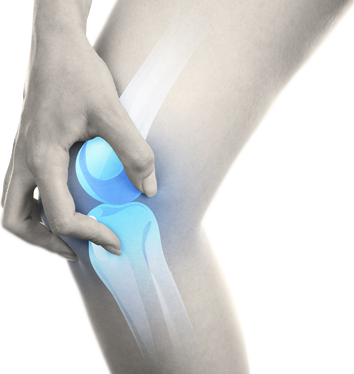
4. Implant Placement: The artificial knee components (prosthesis) are meticulously placed and secured within the knee joint. Proper alignment and fitting are crucial for long-term success. This step can take around 30 to 45 minutes.
5. Closure: Once the implant is in place, the surgeon closes the incision with sutures or staples and applies dressings. The closure typically takes 15 to 20 minutes.
6. Recovery and Awakening: After the surgery, patients are taken to a recovery area, where they gradually awaken from anesthesia. This phase can vary in duration but typically takes about 30 to 60 minutes.
It’s important to note that while the surgery itself may take 1 to 2 hours, the entire process, including pre-operative preparations and post-operative recovery, can span several hours. The exact duration of surgery can vary based on the surgeon’s experience and the patient’s individual circumstances. Patients should consult with their orthopedic surgeon for a more accurate estimate of the expected surgery duration for their specific case.
The medical preparations listed below are common for major procedures needing general anesthesia, such as total knee replacements. Any necessary medical preparations should be communicated in detail by the surgeon and the hospital well in advance of the procedure. Our surgeons at Mediranco will thoroughly guide you with the detailed guide for preoperational courses of action. Reduce or stop using drugs: A patient may be instructed to cease taking specific medications two weeks prior to surgery, including: aspirin, non-steroidal anti-inflammatory drugs (Aleve, Advil), and other drugs that make it more difficult for blood to clot. Steroids and other drugs that weaken the immune system can raise the risk of infection following surgery. Opioid pain relievers to lessen tolerance to painkillers and lessen postoperative pain.Reduce or stop using cigarettes: A patient might be instructed to stop using cigarettes altogether or reduce their consumption. Nicotine slows down the healing process and raises the chance of infection following surgery or deep vein thrombosis, a potentially fatal blood clot in a deep vein. Consult with experts. Patients with additional medical issues, such as diabetes or heart disease, might need to speak with experts in those fields to determine whether they can have surgery.


Reduce or stop drinking alcohol. Patients who consume more than 1 or 2 alcoholic drinks per day should let their doctors know because heavy drinking alters the way anesthetic works.
Report a sickness. Patients should inform their doctors if they become ill in the days before surgery (such as a cold, flu, fever, herpes outbreak, etc.).
Any medication, including homeopathic remedies and dietary supplements, should be disclosed to the surgeon, who should then determine whether it is safe for the patient to use them both before and after surgery.
Getting Ready for Knee Replacement
“Prehabilitation” , or physical treatment before surgery to strengthen the muscles around the knee, may help patients have a little less discomfort and greater knee function following surgery, according to the evidence. However, it appears that neither the length of hospital stays, expenses of care, nor the quality of life following surgery are appreciably impacted by these claimed effects.
Following knee replacement surgery instructions:
- Do your prescribed exercises and get moving: In the first 12 weeks following surgery, you’ll need to put in a lot of effort and endure some uncomfortable knee workouts. It’s crucial to exercise your new knee so that the tendons, ligaments, and muscles around it don’t stiffen up.
- Raise your leg and apply ice: Following a knee replacement surgery, some swelling is typical for three months or longer. Use an ice pack as prescribed and keep your leg elevated to reduce swelling. Compression stockings may also be advised by your physician.
follow the instructions of your physical therapist
You should be able to move around by the end of the first day after surgery. Within the first 24 hours, you begin working with a physical therapist who helps you stand and walk using a walker while also instructing how to get in and out of bed and a chair.
In your hospital room, the therapist shows you how to place your leg in a continuous passive motion machine; the machine moves your knee very gently through flexing and straightening, which helps it strengthen and heal.
You may use it at home for as long as your doctor has prescribed it.
Have a healthy diet
Drink a lot of liquids to stay hydrated. However, avoid drinking alcohol after surgery as it slows recovery. Consume fiber- and vitamin- and mineral-rich whole, unprocessed foods.
Your knees will experience less strain if you maintain a healthy weight. If you were obese before your surgery, you should consider a medically supervised weight-loss program to assist you in getting rid of the extra pounds and keeping them off.
Is knee replacement surgery worth it?
There are several factors to consider if you are thinking of a knee replacement. The discomfort you are unable to manage through other means may be eradicated with knee replacement depending on your age, weight, amount of activity, knee size and shape, and overall health. Contact our supporting staff for further details.
What are the disadvantages of knee replacement?
While knee replacement can be the final solution to some cases, just like other major operations there are some downwards to it. The need to do following surgeries to replace the worn-out replaced joints, risks of DVT (deep vein thrombosis), infection and anesthesia complications are some of setbacks to mention. You might contact our fully available experts at Mediranco for any needed explanations.
How painful is having a knee join surgery?
After the initial knee replacement, some pain is normal, although it shouldn’t be severe. The most painful period should come just after surgery, but your doctor will send you home with painkillers that are appropriate for your level of discomfort.
How long do I have to stay in the hospital for knee replacement surgery?
You’ll normally be in the hospital for 2 to 3 days, depending on your progress and the type of knee replacement you receive. Partial knee replacement patients typically have a shorter hospital stay. Some hospitals may allow you to leave on the same day.
Who are the best orthopedic surgeons in Iran?
Mediranco team has handpicked the most professional and experienced surgeons in Iran, having the satisfaction of hundreds of patients worldwide. You can ask for the list of our available surgeons in different cities by contacting our support.




